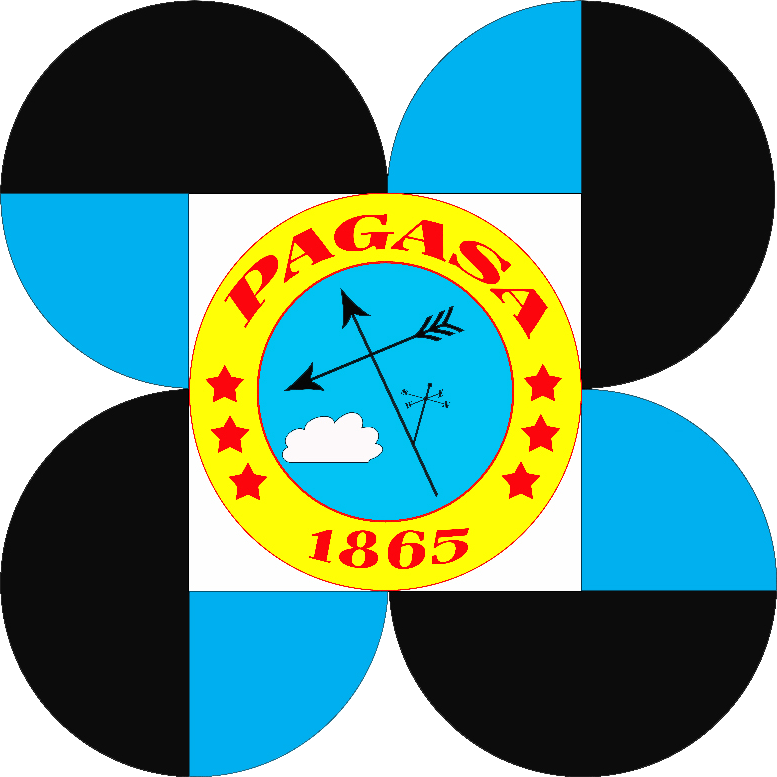DOST-PAGASA MODIFIES TROPICAL CYCLONE WIND SIGNAL (TCWS) SYSTEM
23 March 2022
PRESS STATEMENT
DOST-PAGASA S&T Media Service
23 March 2022, Quezon City
For the past decades, the Philippines has experienced several extremely devastating tropical cyclones, particularly typhoons with more than 220 kilometers per hour (kph) of sustained winds as the country is impacted by an average of 20 typhoons per year.
Following the onslaught of Typhoon Yolanda (Haiyan) in 2013, the DOST-PAGASA revised the then-Modified Public Storm Warning Signal (PSWS), to reflect the demands from the public and disaster managers for an additional level to the then four (4) level PSWS. The said revision was made along with the introduction of the Super Typhoon (STY) category. Under the new Tropical Cyclone Wind Signal (TCWS) System, TCWS No. 5 was introduced to warn the public with strong winds of more than 220 km/h (i.e., for tropical cyclones classified as STY) roughly 12 hours before the onset of such conditions.
After almost seven years of implementation, the DOST-PAGASA decided to modify several changes to the TCWS pending the completion of the sunset review of its warning system for Tropical Cyclone (TC) winds. The changes are based on the adoption of best practices from other TC warning centers and regionally-accepted operational standards, developments in objective guidance for TC wind swaths, operational experiences and challenges encountered by typhoon forecasters, and feedback from end-users and stakeholders. The revised version of this warning system, called the Modified Tropical Cyclone Wind Signal (TCWS) System, is as follows:
Table 1. Modified TCWS System ( 23 March 2022)
| Wind signal level | Wind threat | Warning lead time* | Issued for what TC categories? | Potential impacts |
| 1 | Strong winds Beaufort 6-7 39-61 km/h (22-33 kt, 10.8-17.1 m/s) |
36 h | TD or higher | Minimal to minor threat to lives and properties |
| 2 | Gale-force winds Beaufort 8-9 62-88 km/h (34-47 kt, 17.2-24.4 m/s) |
24 h | TS or higher | Minor to moderate threat to lives and properties |
| 3 | Storm-force winds Beaufort 10-11 89-117 km/h (48-63 kt, 24.5-32.6 m/s) |
18 h | STS or higher | Moderate to significant threat to lives and properties |
| 4 | Typhoon-force winds Beaufort 12 118-184 km/h (64-99 kt, 32.7-51.2 m/s) |
12 h | TY or higher | Significant to severe threat lives and properties |
| 5 | Typhoon-force winds Beaufort 12 185 km/h or higher (100 kt or higher, 51.3 m/s or higher) |
12 h | STY | Extreme threat to lives and properties |
These changes will be adopted by the DOST-PAGASA as a solution due to the following major reasons:
- Damage assessment revealed that the resulting impacts on the ground of meteorological conditions commonly associated with the Wind Signal Nos. 4 and 5 of the old TCWS system are indistinguishable from each other.
- Wind Signal No. 2 in the old TCWS System spans a wide range of wind speeds thus, it means that its coverage will have a wide range of impact severity. This is rather inefficient for warning purposes because in the old system, Wind Signal No.2 will be the highest level of warning that can be issued for both Tropical Storm (TS) and Severe Tropical Storm (STS) categories despite the increased severity of tropical cyclone winds when upgrading from TS to STS.
Considering the above reasons, the Modified TCWS System will be implemented effective this 23rd March 2022, in conjunction with the commemoration of the 157th National/72nd World Meteorological Day.
For more information, you may reach us through the following telephone numbers: Weather Division: 82840800 loc. 805/823 or email us at pagasawfs@gmail.com
Original Signed:
VICENTE B. MALANO, Ph.D.
Administrator
More Press Release
17 May 2024
DOST-PAGASA S&T Media Service
17 May 2024, Molugan, El Salvador City,
12 April 2024
PRESS STATEMENT
DOST-PAGASA S&T Media Service
12 April, 2024, Quezon City
Read more
22 March 2024
DOST-PAGASA S & T Media Service
Read more
22 March 2024
DOST-PAGASA S & T Media Serv...
Read more